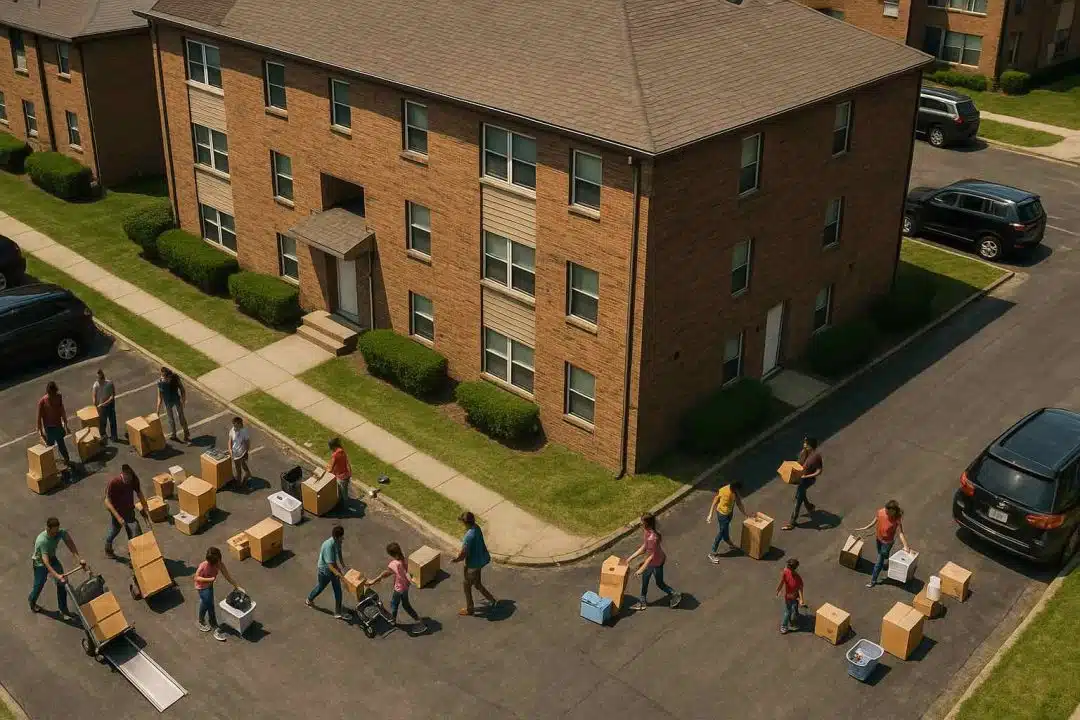
The Trump administration wants to impose a two-year time limit on Section 8 housing assistance. This would displace over 1.4 million low-income households, according to new research from New York University.
Families with children face the greatest risk
Most households impacted by the proposal include working families with children. About 70% of affected households have already used rental assistance for more than two years. If the administration enforces the time cap housing authorities would need to evict long-term tenants. They would be replaced them with new recipients.
The proposal carves out exemptions for elderly and disabled individuals. It also leaves ambiguity around how HUD would define those terms or enforce the new policy.
Trump’s HUD reform agenda
HUD Secretary Scott Turner says the administration aims to return public housing to its original mission—temporary aid, not permanent support. At a June budget hearing, Turner said, “It’s broken and deviated from its original purpose, which is to temporarily help Americans in need.”
The administration wants to cut HUD’s budget by 43% and consolidate the agency’s rental programs into state-managed block grants, giving states broad control over who receives help—and for how long.
Experts warn of mass homelessness and chaos
NYU researchers analyzed 4.9 million households and concluded the plan would cause “enormous disruption” and high administrative costs for housing authorities.
“They would have to evict all of these households and identify new households to replace them,” the report said.
Housing experts say most housing agencies lack the resources and infrastructure to enforce time limits or support affected families. Even agencies that tested five-year limits with extensions struggled to offer job training or transitional housing. Of 17 housing authorities that tried time limits, 11 abandoned the programs.
Real families on the edge
Havalah Hopkins, a single mother in Washington state, pays $450 per month—30% of her income—for a subsidized two-bedroom unit. Her teenage son, who has autism, lives with her. If HUD applies the time cap strictly, Hopkins could lose her home in 2026.
“I like that I can afford it,” she told the AP.
Hopkins works in food service and faces tight finances like many low-income renters. Without clear guidance on disability definitions or exemption procedures, her family remains at risk.
Housing authorities brace for fallout
Kentucky’s housing agencies estimate they could lose hundreds of millions in annual funding under the proposal. KHC Deputy Director Wendy Smith says the cuts would leave “rural communities with no backup plan,” and warns the entire system could collapse without years of preparation.
“It’s not just disruptive to tenants, but to all landlords and property owners,” Smith said.
In California, housing authority staff say even short-term time limits have left families struggling to pay rent once their benefits expire. Many end up back on waitlists or in unaffordable market units.
Critics say the plan lacks realism
Housing professionals argue that block grants lack equity safeguards, shift risk to states, and make housing support harder to track and enforce. They warn the move would gut institutional knowledge, burden state governments, and increase homelessness—especially among seniors, disabled people, and single-parent households.
What happens next?
Congress will review the budget proposal in the coming months. Lawmakers on both sides of the aisle have supported rental programs in the past. Housing advocates hope Congress will reject the cuts and preserve HUD’s core mission.
